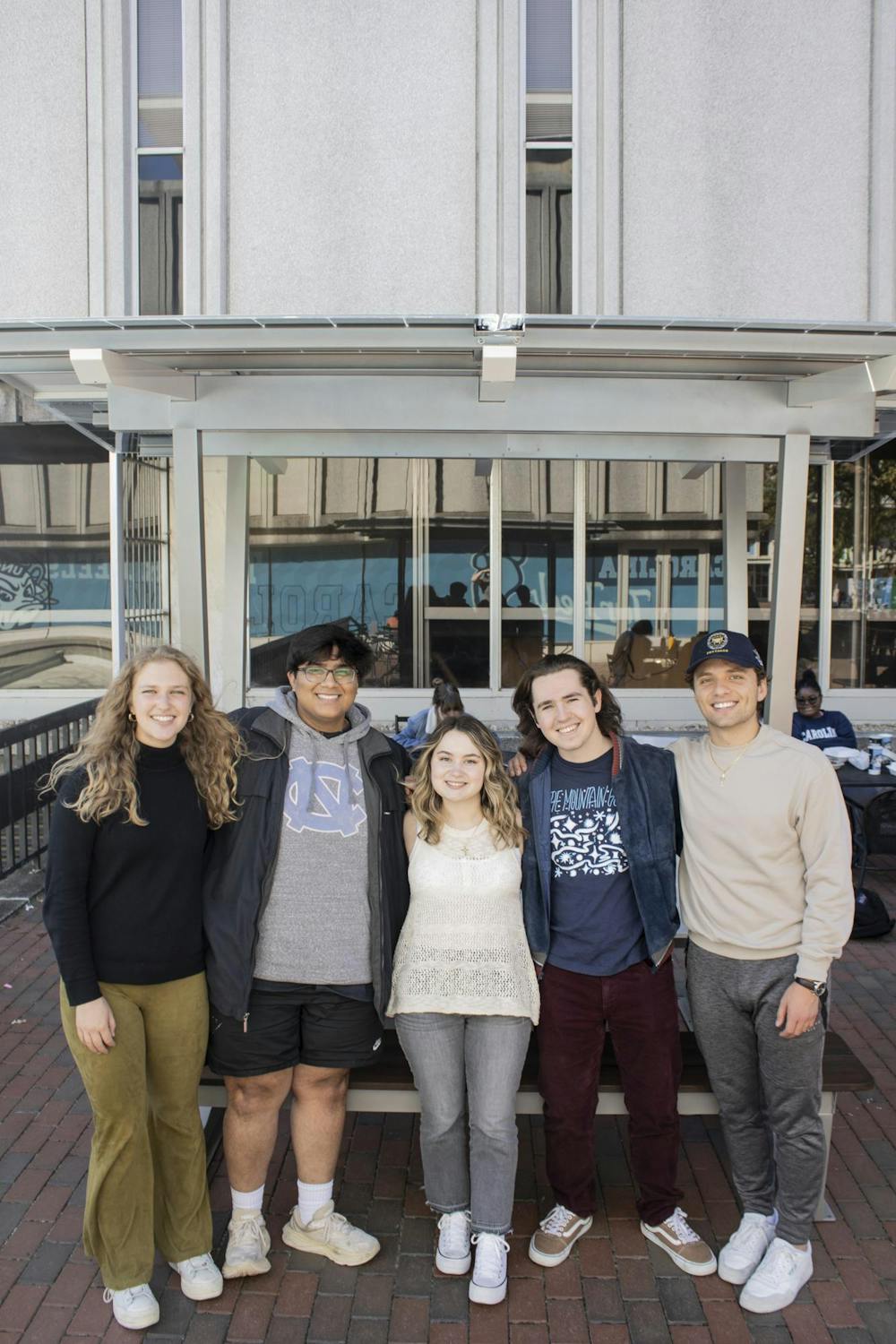A new picnic table now sits in the Pit between UNC Student Stores and the Undergraduate Library. Unlike the many other surfaces that accompany it, this table does not only provide a shaded study space — it also produces electricity.
The solar table was installed over fall break by the Renewable Energy Special Projects Committee — a student-run committee that manages the money allocated by UNC's Student Renewable Energy Fee. RESPC organized the project in collaboration with Spotlight Solar, an organization that produces solar architectural structures.
The table has an overhead roof with solar panels which power wireless charging stations, outlets and an automatic lighting system on the table.
“They're important because students can use that space to do their work there. But I think more so, they’re an important piece for people to see the transition towards renewable energy,” Jash Sangani, co-chair of RESPC, said.
Noah Kittner, assistant professor in the Department of Environmental Sciences and Engineering said the project is an innovative and important demonstration of the "unique" ways solar electricity can be generated in different locations.
Kittner, who teaches classes on sustainable energy systems and energy modeling, said he feels that solar energy is one of the best ways to address the climate crisis because of its carbon-free electricity.
“If we're going to think about ways to reduce our fossil fuel use, it can start with small picnic tables. It's an important start,” Kittner said.
The Student Renewable Energy Fee is a $4 charge that every student pays as part of their tuition costs each semester. This specific fee is managed by RESPC to implement renewable energy, energy education and energy efficiency projects on campus.
“It's important to have organizations like RESPC because that's how you can continue to be a leading university while also having your students take leadership themselves into these green initiatives,” Gianluca Ciuffreda, a member of RESPC and the project lead for the solar tables, said.




